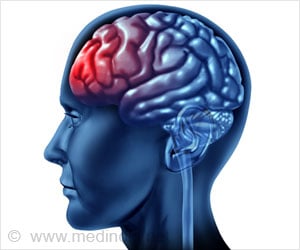Traumatic brain injuries, whether suffered from a blow on the football field or the battle field, can lead to disability and shortened lives.

‘Traumatic brain injury (TBI) is a complex injury with a broad spectrum of symptoms and disabilities. The impact on a person and his or her family can be devastating.’





In 2013, U.S. emergency rooms received around 2.8 million patients with traumatic brain injuries, with nearly 50,000 patients dying, according to the U.S. Centers for Disease Control and Prevention. Brain injuries can be classified as mild, moderate or severe, with mild injuries, or concussions, representing about 75 percent of cases. Some people recover completely from such injuries, while others experience lasting disability or dementia, particularly if the patient has experienced repeated concussions. Previous proteomic studies in humans with brain injuries didn't control for the cause, while results in mice examined the effects of time since injury or repeated injury, but not both. In this proteomic study, Jianyun Yu, Hu Zhou and colleagues assessed brain protein levels after one or more concussions in rodents at multiple timepoints.
To perform the analysis, the researchers divided 27 rodents into nine groups: one day, seven days or six months after either no concussions, a single concussion or three concussions on three consecutive days. The researchers performed proteomic analysis on the brain samples using tandem mass spectrometry, identifying clusters of proteins that seemed to increase or decrease depending on injury severity or time since injury.
Interestingly, molecules involved in the cAMP signaling pathway, which helps regulate heart rate, stress levels and memory, appear to play an important role in the mediation of brain injury and recovery.
Source-Eurekalert








